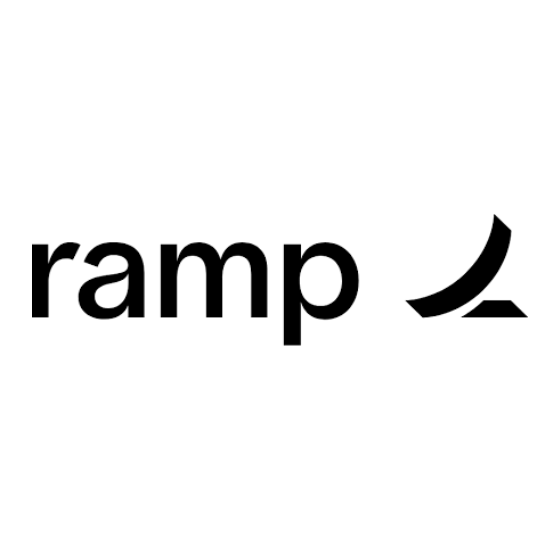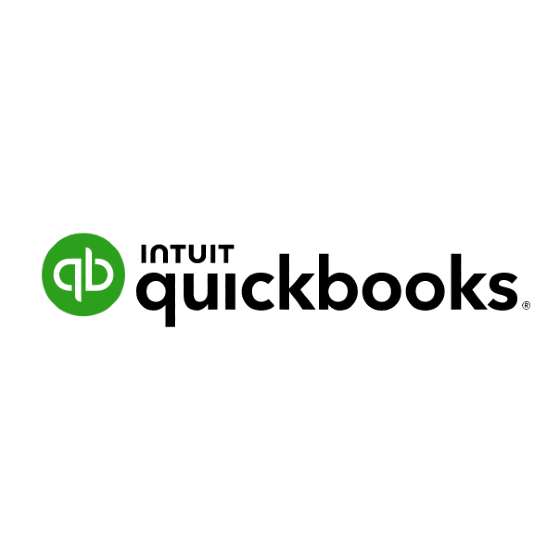FreeAgent is an accounting software that offers a subscription-based pricing structure with both monthly and yearly payment options. Financial managers and operators use it to manage recurring invoices, track expenses, streamline workflows, and handle tax estimates efficiently.
FreeAgent's pricing plan is known for being flexible and offering good value compared to competitors. This guide covers everything you need to know about FreeAgent's pricing, features, and costs to make an informed purchase decision with confidence.
How Much Does FreeAgent Cost?
FreeAgent offers one paid plan. Users can choose to either purchase this plan on a monthly or yearly billing cycle. Pricing for the monthly cycle is $13.50/month for the first 6 months. After 6 months, users will pay the standard plan rate of $27/month.
For the annual subscription, users will pay $135/year for the first 12 months. Then, pricing returns to the standard cost of $270/year. A free version is not available, but there is a 30-day free trial for users to experience the software.
FreeAgent Plans & Pricing Tiers
Here's an overview of the available FreeAgent plans:
| Plan Type | Price per Month/Year | What’s Included? |
| Standard Plan | $13.50/month (for first 6 months, then $27/month) OR $135/year (for first 12 months, then $270/year) | Time tracking, performance management, receipt management, invoice processing and tracking, templates, timesheets, cashflow monitoring, mobile app, 2-step verification, data encryption, and password protection. |
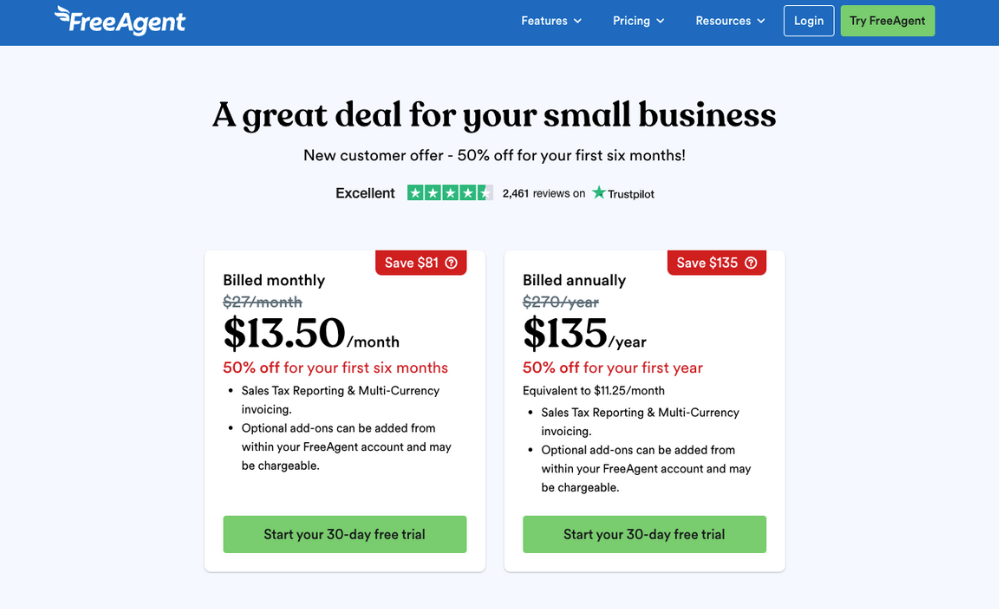
FreeAgent Pricing vs. Competitors
FreeAgent is generally considered average in pricing among accounting software. It offers a single pricing tier that users can choose to pay for monthly ($13.50/month) or annually ($135/year). The features for this plan includes invoicing, expense tracking, and UK tax compliance, which competes well with alternatives like QuickBooks and Xero.
FreeAgent's integrations are fewer and not locked to higher tiers, making it easily accessible for small businesses. Similarly, the software’s security safeguards are standard for cloud accounting solutions, ensuring data protection for all users.
On the other hand, competitors like QuickBooks offer multiple pricing tiers with more advanced features at higher costs. While FreeAgent’s pricing is affordable, users seeking additional features and stronger security measures may require a different solution.
Comparison Chart: FreeAgent vs. Alternatives
Wondering how FreeAgent pricing compares to other accounting software? Here’s a comparison chart that breaks down the costs of other accounting software side-by-side:
| Tool | Best For | Trial Info | Price | ||
|---|---|---|---|---|---|
| 1 | Best for fast-growing businesses | 30-day free trial | From $2/month (for 3 months, then $20/month) | Website | |
| 2 | Best for automated expense management | Free demo available | From $15/user/month | Website | |
| 3 | Best for small businesses | 30-day free trial | From $10.50/month (for 3 months, then $35/month) | Website | |
| 4 | Best for comprehensive invoicing and billing | Free trial + free plan available | From $15/month (billed annually) | Website | |
| 5 | Best for service-based businesses | 30-day free trial | From $6.30/month (billed annually) | Website | |
| 6 | Best for mid-sized businesses | Free demo available | Pricing upon request | Website | |
| 7 | Best for multi-entity financial management | Free demo | Pricing upon request | Website | |
| 8 | Best for flexible accounting methods | Free demo available | From $20/month | Website | |
| 9 | Best for automated bookkeeping | 14-day free trial | From $20/month | Website | |
| 10 | Best for nonprofits | 30-day free trial + free plan available | From $15/month (billed annually) | Website |
Alternatives to FreeAgent
FreeAgent is a solid accounting software, but there are plenty of other options out there. Depending on your use case, budget, team size, and other factors, you might consider shopping around for a solution that’s better suited to your needs. If you’re looking for alternative accounting software options to FreeAgent, here are a few worth checking out:
- QuickBooks Online: Offers extensive features with strong integration capabilities suitable for small to medium-sized businesses.
- Xero: Known for its user-friendly interface and strong support for third-party app integrations.
- FreshBooks: Excels with its invoicing features, making it ideal for service-based businesses.
- Sage Intacct: Provides advanced financial management capabilities suitable for growing enterprises.
- NetSuite: Offers an advanced enterprise resource planning solution with strong accounting features.
- Zoho Books: Known for its affordability and advanced accounting tools, mainly tailored for small businesses.
How to Choose the Right FreeAgent Plan
When deciding whether or not to choose FreeAgent as your next business accounting software, you’ll want to consider the added value and potential drawbacks. Scrolling through long lists of features can quickly lead to confusion and uncertainty, so here are a few factors to keep in mind as you evaluate and assess your options:
FreeAgent Scalability and Team Size
Evaluating FreeAgent's scalability is vital for aligning with your team’s size and growth trajectory.
FreeAgent caters primarily to freelancers and small businesses, offering features like invoicing and tax management, making it suitable for teams starting in a micro-business environment. For instance, a sole trader may find the monthly payment option more affordable initially, while a larger organization may benefit from a yearly plan.
As your business expands, consider whether FreeAgent's scalability matches your growing needs, or if a switch to a more integrated solution like QuickBooks is necessary. This helps ensure that your financial management tools grow alongside your team.
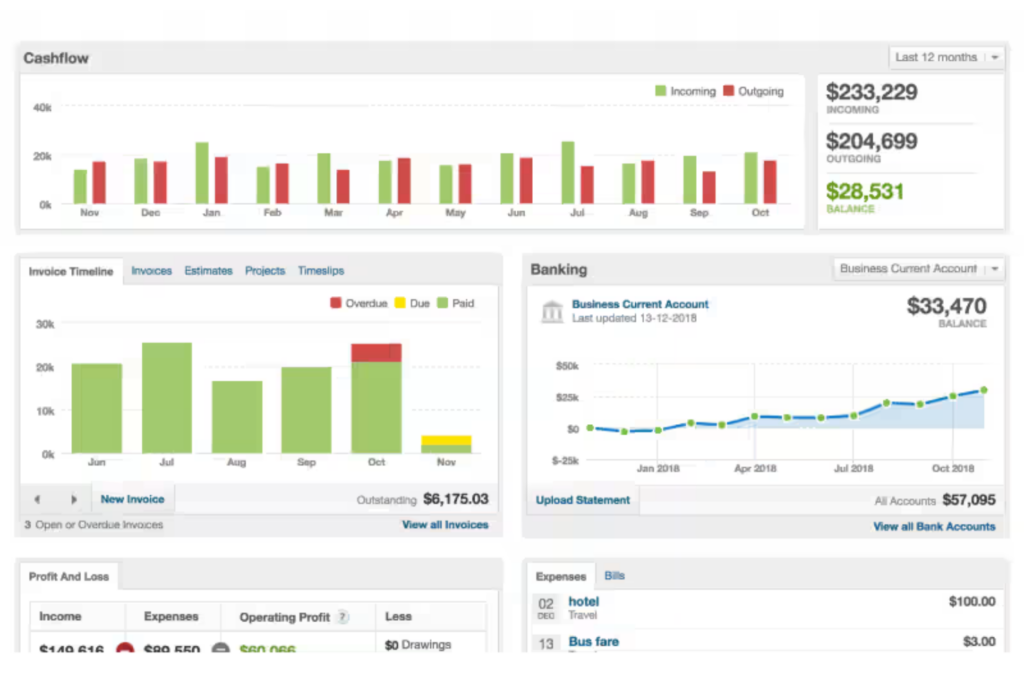
Industry-Specific FreeAgent Features
Alongside scalability, you’ll also need to determine whether or not FreeAgent's industry-specific features meet your business needs.
FreeAgent offers tools like invoicing, expense tracking, project management, and tax reporting, which benefit teams by enhancing financial management. Features like sales tax and multi-currency invoicing are particularly useful for businesses operating in multiple regions.
These features are available in both the monthly and yearly subscriptions, ensuring accessibility without additional costs or complex upgrades. FreeAgent also supports small businesses with a 30-day free trial and promotional pricing, making it a viable option for a wide range of industries.

FreeAgent Integration Capabilities
Connecting accounting software to your existing tech stack is vital for efficient operations.
FreeAgent offers native integrations with Stripe, GoSimpleTax, KnowIt, Capsule, HubSpot, Contactzilla, Firmao, Commusoft, WooCommerce, Corpay One, and PayPal. It also supports third-party integration tools like Zapier, allowing you to connect with thousands of apps. Additionally, the software provides an API for building custom integrations, ensuring flexibility to meet your specific needs.
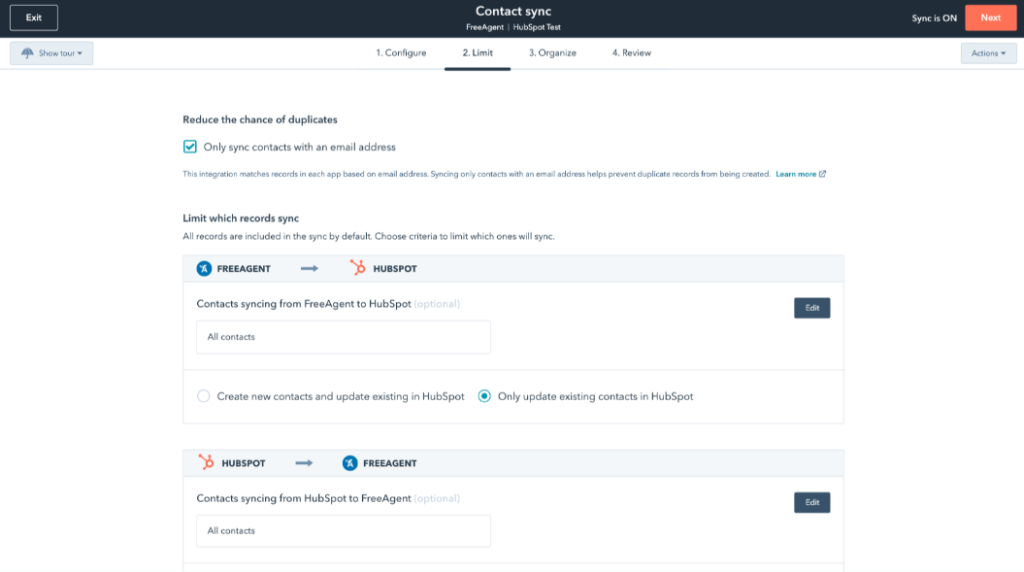
FreeAgent Security Safeguards
When examining FreeAgent as a potential software, it’s also important to consider the security features that protect your data.
FreeAgent prioritizes security across all plans by using multiple layers of protection, including strong encryption standards and continuous monitoring for malicious activity. All customer data is stored in secure data centers in Ireland, compliant with ISO standards and GDPR regulations.
FreeAgent also offers features like 2-step verification and DDoS mitigation. These security measures remain consistent in both the monthly and yearly payment options, ensuring your data's safety, regardless of how you pay. These safeguards provide peace of mind, allowing you to focus on your business.

FreeAgent Pricing FAQs
Here are answers to a few common questions about FreeAgent pricing:
What additional costs should I anticipate with FreeAgent?
In addition to the standard subscription fee, FreeAgent offers optional add-ons that users might consider. For instance, the Smart Capture Unlimited tool for receipt scanning is available for an additional $6/month. There are no setup fees, and users can cancel anytime without penalty.
Are there any discounts or promotions available for FreeAgent?
Yes, new customers receive a 50% discount for the first 6-12 months, paying $13.50/month or $135/year instead of the usual $27/month or $270/year. Additionally, customers can opt to pay upfront for a year and receive 12 months for the price of 6.
How often does FreeAgent change its pricing structure?
While specific details on the frequency of pricing changes are not available, FreeAgent’s current pricing and discount offers suggest that they periodically review and adjust their pricing structure to stay competitive and offer value to their customers.
Can I cancel my FreeAgent subscription at any time?
Yes, FreeAgent offers flexibility by allowing users to cancel their subscriptions at any time. There are no contracts, and users can download their data before canceling.
Does FreeAgent offer a free trial?
FreeAgent provides a 30-day free trial for new users, allowing them to explore the features and assess the software before committing to a paid plan.
Is customer support included in the FreeAgent subscription?
Yes, FreeAgent includes award-winning customer support as part of its subscription, ensuring users have access to assistance whenever they need it.
Is FreeAgent Good Value?
In my opinion, FreeAgent offers good value for small business owners and freelancers seeking a user-friendly accounting solution.
Its features cater specifically to smaller enterprises with functionalities like expense tracking, invoicing, and time tracking, which are essential for managing finances without the complexity of larger software. The pricing is competitive, especially considering the range of features included, making it an attractive option for budget-conscious users.
Along with a strong feature set, the software’s interface is intuitive, and the onboarding process is straightforward, which helps users get started without needing extensive training or added hassle. Similarly, its integrations with bank feeds and other business tools enhance its utility and ease of use.
However, despite these perks, FreeAgent may not suit larger organizations requiring extensive customization or complex financial reporting.
Verdict: FreeAgent is a cost-effective tool for small businesses and freelancers looking for straightforward accounting and bookkeeping software with essential features.
Want to learn more about FreeAgent? Check out their site for additional information.
From $13.50/user/month
30-day free trial
What’s Next?
Ready to compound your abilities as a finance professional? Subscribe to our free newsletter.


